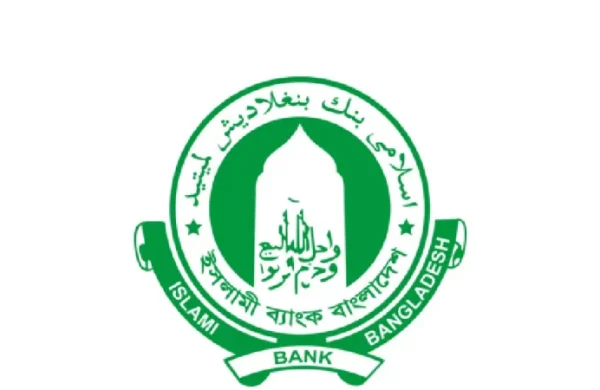Businesses set for relief as interim govt eyes major tax and fine cuts
- Update Time : Thursday, May 29, 2025

Staff Correspondent:
Businesses grappling with high operational costs in Bangladesh may soon receive significant relief as the interim government plans substantial reductions in import misdeclaration fines and a cap on interest for tax-related legal disputes. These measures, set to be unveiled in the upcoming 2025-26 fiscal year budget early next month, aim to ease the burden on businesses and improve the country’s “ease of doing business” ranking.
Currently, misdeclaring imports can lead to fines up to 400% of the payable tax, while interest on unresolved tax cases, often dragging on for a decade, places an immense financial strain on companies. The proposed reforms, according to National Board of Revenue (NBR) officials, include slashing import misdeclaration fines by half and limiting interest on tax-related legal disputes to a maximum of two years.
Other key changes on the horizon include reduced penalties for minor errors in import declaration forms and breaches of the Import Policy Order. Crucially, the reforms also seek to limit customs officials’ discretion in valuing imported goods, shifting towards importer-declared values – a long-standing demand from the business community.
A senior NBR official, who requested anonymity, informed that the finance adviser is expected to announce these measures during the budget address. NBR Chairman Abdur Rahman Khan, at a recent pre-budget discussion, affirmed that the upcoming budget would focus on both increasing tax collection and removing non-tariff barriers that hinder business growth.
A WELCOME SHIFT FOR BUSINESSES
Tax experts and business leaders have largely welcomed the proposed reforms. Snehasish Barua, a tax expert and managing partner at Snehasish Mahmud and Company, “If such initiatives are implemented, they will help improve Bangladesh’s ranking in ease of doing business. The simpler these non-tax barriers become, the more businesses will be encouraged to engage in trade and investment.”
Under the proposed changes, the maximum fine for misdeclaration of imported goods will be reduced from 400% to 200% of the payable tax. Furthermore, the practice of charging interest for the entire duration of prolonged tax dispute cases, which can last up to 10 years, will be capped at two years. This is a significant relief, as accumulated interest has, in some instances, forced businesses to sell off immovable property to settle dues.
Currently, any mistake in the Import General Manifest (IGM) — a crucial document submitted to customs by the carrier at the destination port — carries a minimum penalty of 50% of the applicable import tax. The upcoming budget may scrap this rule, allowing tax commissioners to impose only nominal fines for minor errors. Similarly, the provision for a minimum penalty equal to the import tax for violations of the Import Policy Order (IPO) may also be removed, granting commissioners discretion to impose significantly reduced penalties.
Shipping companies may also see the elimination of the existing minimum fine of Tk50,000 for cargo declaration mistakes, with commissioners allowed to impose token fines instead. Additionally, the duty-free import facility for items like books and magazines, currently capped at Tk2,000, may be doubled to Tk4,000.
These reforms are expected to provide substantial relief to importers and businesses, fostering smoother trade and better compliance, the NBR official added.
INDUSTRY LEADERS APPLAUD, SEEK FURTHER DEREGULATION
Business leaders, while acknowledging the proposals as modest on paper, believe they could offer much-needed relief if effectively implemented. Zaved Akhtar, president of the Foreign Investors Chamber of Commerce and Industry (FICCI) and managing director of Unilever Bangladesh Limited, stated, “These are progressive moves and should aid in reducing the burden on businesses.” He emphasised that regulators should act as facilitators of trade and commerce, not just instruments of control.
Akhtar called for a more deregulated environment with fewer sector-specific controls, reduced proliferation of circulars, and fewer no-objection certifications. He advocated for institutionalising self-certification and third-party professional certification, coupled with digitising processes and minimising human intervention.
Mohammad Hatem, president of the Bangladesh Knitwear Manufacturers and Exporters Association (BKMEA), welcomed the move to cut misdeclaration penalties but expressed concern that allowing penalties of up to 200% is still high, particularly for bonded exporters. He highlighted that minor HS code mistakes or discretionary decisions by customs officials can lead to misdeclaration charges, even when imported raw materials are intended for export. Hatem stressed the need for a system to identify and target genuine offenders, as those who deliberately commit fraud often evade detection, while legitimate businesses bear the brunt of heavy penalties.
BALANCING RELIEF WITH RISK
While the tax relief measures are largely welcomed, NBR officials acknowledge the potential for misuse by unscrupulous businesses. A commissioner from an NBR VAT office, speaking anonymously, expressed concern that capping interest on tax-related cases at two years could incentivise some businesses to intentionally prolong litigation to delay payments.
The commissioner explained that businesses might file lawsuits to defer paying government revenue, investing the disputed amount in their business or a bank. If the verdict goes against them after several years, they could settle the dues with the returns earned, including interest, while only paying a capped two years’ worth of interest. This could lead to the government receiving less revenue in terms of the “time value of money.” The commissioner noted that the provision for interest was originally introduced to combat such delays by dishonest businessmen and urged the development of mechanisms to identify and punish actual tax evaders.


















